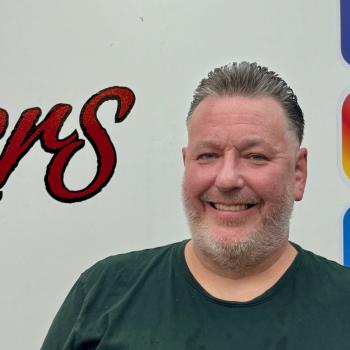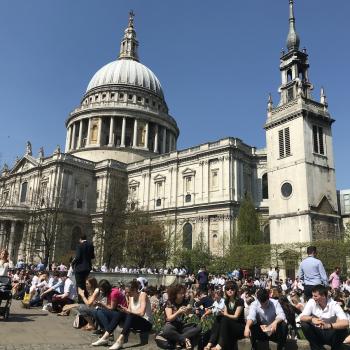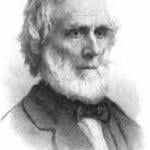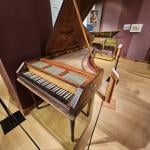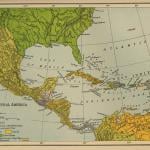One of the great joys of this conference is that it is a gathering of friends. I had a lovely tea at the Grand Hotel on the Brighton seafront with my dear friends, Ian and Megan Jukes, Andrew and Cheryl Cottingham, and Tom Eaton. We had a lot of fun, and the connection was re-established. I suddenly realized that around Brighton many such reunions of longstanding friends who are also attending this conference are undoubtedly happening.
During the worship time there were some stirring prophetic words that spoke of us becoming more prominent and that there would be new openings for us as a movement.
Terry Virgo was the speaker last night. He is based right here in Brighton at Church of Christ the King, and leads the Newfrontiers team. A well-known Bible teacher, Terry speaks at conferences around the world. He has written several books, including No Well-Worn Paths, God’s Lavish Grace, and The Tide is Turning. Terry blogs here, and I have interviewed him at the following pages:
- Terry Virgo on the Future (June 2007)
- Terry and Wendy Virgo at New Word Alive (Video Interview, April 2008)
- Terry and Wendy Virgo at New Word Alive (Transcript of Video Interview)
More posts from this conference can be found on my TOAM08 label page. You can download the mp3 of Terry’s talk, or listen to it right here:
As a background, Terry was praying with his wife, Wendy, about other things. Suddenly he heard the phrase, “Stephen and Philip.” It was so clear that he asked his wife, “Did you just say Stephen and Philip?” He felt that God had asked him to look at these men, who were not front line people, not Apostles, but served God’s purpose in a remarkable way.
Terry began last evening’s session by reading extracts from Acts 6-7 to us.
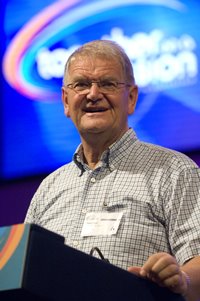 In Acts 2 we see the Holy Spirit came on the disciples and a large number repented. The Spirit then fell on thousands of other people. No longer was it just one or two people. There was a sudden invasion of the presence of God. God himself flooded the place. Five thousand people were saved in one day, but since only the men were counted, when the women and children were included, it would probably have been around 20,000 people!
In Acts 2 we see the Holy Spirit came on the disciples and a large number repented. The Spirit then fell on thousands of other people. No longer was it just one or two people. There was a sudden invasion of the presence of God. God himself flooded the place. Five thousand people were saved in one day, but since only the men were counted, when the women and children were included, it would probably have been around 20,000 people!
It then goes on to speak of large multitudes being added to the Church. All were healed—vast numbers. Thousands. Jesus had conquered death and was out of a sealed grave. The Sanhedrin took the leaders and locked them in prison, and almost like another resurrection, they were gone the next morning and were in the temple preaching. It was impossible to hold down these people!
Stephen and Philip arrive on the scene at a time when much growth is occurring. There is a crisis of growth. It was a social thing. God is interested in the poor and the orphans. We need to express our love in terms that help the poor and needy.
Contention arises between the Greek and Jewish widows. There is a challenge to justice. The Apostles know they must prioritize prayer and the preaching. They don’t just want sharp guys who can administrate; they ask for men full of the Holy Spirit. The Spirit enables them. It is that filling by the Spirit that confirms that they are equipped and chosen by God.
Both of these men were so flooded with God that they did more than they had been appointed to do. They overflowed with God and began to preach and heal despite not being Apostles. They did signs and wonders. [Incidentally, the thought struck me here that those who claim that healings were only intended to attest to the original Apostles are not really taking into account these two people, among others!]
The servants of God are backed up in the Bible by supernatural evidences that God is with them. There are seasons in the Old Testament when people are far from God and it seems the supernatural is far from them. Then, again and again, when they turn back to God, signs and wonders occur.
Romans 15:18 — “What Christ has accomplished through me … by the power of the Spirit of God.”
There are some who argue that signs and wonders ceased when the Scriptures were closed. But we believe God wants to do things to confirm and affirm his Word. Some are saying that it is not for today. Jesus told us that we would do the same things he did. He has received the Holy Spirit and all authority, and he now sends the Spirit and says, “Go and do the things that I do!”
In recent years we have seen an escalation of healing among us—more than in previous decades. Terry asked who had seen a healing in their own church in the last five years. Almost every person in the room raised a hand. Because of the lights, Terry wasn’t able to see everyone and said “hundreds” were raising their hands. The truth is, it was thousands.
We must break through our cynicism and unbelief and come back to biblical Christianity—Word and deed. We must press on and ask for more.
It’s no good only arguing for the authority of Scripture. We must also act as though we believe in the reality of the supernatural God. Present contact with the supernatural is not far off and strange.
Francis Schaeffer, in Death in the City, claims that too many Christians act as if they come into contact with the supernatural twice in their lives—at conversion and resurrection. Instead, we live as materialists:
“Christianity is not just a mental assent that certain doctrines are true—not even that the right doctrines are true. This is only the beginning.
This would be rather like a starving man sitting in front of great heaps of food and saying, “I believe the food exists; I believe it is real,” and yet never eating it. It is not enough merely to say, “I am a Christian,” and then in practice to live as if present contact with the supernatural were something far off and strange. Many Christians I know seem to act as though they come in contact with the supernatural just twice—once when they are justified and become a Christian, and once when they die. The rest of the time they act as though they were sitting in the materialist’s chair.
The difference between a Christ
ian who is being supernatural in practice and one who says he is a Christian but lives like a materialist can be illustrated by the difference between a storage battery and a light plug. Some Christians seem to think that when they are born again, they become a self-contained unit like a storage battery. From that time on they have to go on their own pep and their own power until they die. But this is wrong. After we are justified, once for all through faith in Christ, we are to live in supernatural communion with the Lord every moment; we are to be like lights plugged into an electric socket.”
Francis Schaeffer, Death in the City, page 147
Stephen was a “wisdom and power” man. These days there are two lots of websites—there are power websites and there are wisdom websites. If you go to the power site, there is no wisdom. If you go to the wisdom site, there is no power. Why do websites where we hear much about power have little in the way of good teaching? Why do the sites where we love to listen to the teaching know nothing of the power?
We can’t say, “Let’s forget the wisdom and get into the power.” You don’t get into power by blowing your brains away. Paul doesn’t depend on wisdom, but he is described as reasoning and persuading people about the kingdom of God. There can be a powerful people raised up who also know such wisdom that it cannot be contradicted.
We need apologists, people who can help people think. Too often we close our minds to the gospel unreasonably. We need to break through that in a fresh way. In some ways this whole section of Terry’s talk reminded me of my post on “I Don’t Want Balance, I Want It All.”







